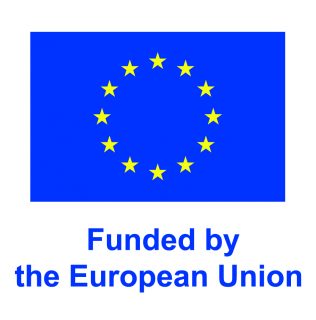Project name: Enhanced and cost-effective biosecurity in livestock production
Project number: 101083923
Call number: HORIZON-CL6-2022-FARM2FORK-01
List of the partners:
1 (CO) UNIVERSITEIT GENT (UGENT) Belgium
2 TEAGASC – AGRICULTURE AND FOOD DEVELOPMENT AUTHORITY (TEA) Ireland
3 KOBENHAVNS UNIVERSITET (UCPH) Denmark
4 UNIVERSIDAD AUTÓNOMA DE BARCELONA (UAB) Spain
5 STATENS VETERINÄRMEDICINSKA ANSTALT – Swedish National Veterinary Institute (SVA) Sweden
6 ANIMAL HEALTH IRELAND INITIATIVE (AHI) Ireland
7 INSTITUT NATIONAL DE RECHERCHE POUR L’AGRICULTURE, L’ALIMENTATION ET L’ENVIRONNEMENT (INRAE) France
8 ECOLE NATIONALE VETERINAIRE DE TOULOUSE France
9 PIG CHAMP PRO EUROPA SL (PIGCHAMP) Spain
10 Biocheck.Gent BV (BIOCHECK) Belgium
11 UNIVERSITATEA DE STIINTE AGRONOMICE SI MEDICINA VETERINARA DIN BUCURESTI (USAMV) Romania
12 EESTI MAAULIKOOL – ESTONIAN UNIVERSITY OF LIFE SCIENCES (EMU) Estonia
13 THE UNIVERSITY OF NOTTINGHAM (UNOTT) United Kingdom
14 ALMA MATER STUDIORUM – UNIVERSITA DI BOLOGNA (UNIBO) Italy
15 ALLATORVOSTUDOMANYI EGYETEM – UNIVERSITY OF VETERINARY MEDICINE BUDAPEST (UVMB) Hungary
16 SIMHERD AS (SIMHERD) Denmark
17 UNIVERSITEIT UTRECHT (UU) Netherlands
18 Kreavet BV (KREAVET) Belgium
19 THE FOOD AND AGRICULTURE ORGANIZATION OF THE UNITED NATIONS – European Commission for the Control of Foot and Mouth Disease (EUFMD) Italy
Total budget: 4.868.322,50 €
UVMB’s budget: 146.087,50 €
Funding rate: 100%
Duration:
from 1st January 2023 to 31st December 2026 (48 months)
Project website: https://biosecure.eu/
Summary:
Given the multitude of interactions between animals, humans and production systems, a thorough understanding of infection transmission routes is key in designing good biosecurity measures. Transmission can occur via direct contact but also through a range of indirect routes such as clothing, footwear, contaminated vehicles, air etc. Although all these routes have been described, their relative importance and therefore the importance of the linked biosecurity measures are still poorly understood. Consequently, many of the current biosecurity guidelines are based on empirical evidence making it difficult to rank measures by importance. The overarching goal of BioSecure is to improve the capacity for key actors and decision-makers in livestock farming to understand, prioritise and implement evidence-based, cost-effective and sustainable biosecurity management systems in current and future terrestrial livestock production chains for pigs, poultry, cattle and small ruminants.
This will be achieved by:
• Setting up and facilitating a multi actor stakeholder forum to support interactive knowledge exchange, bottom-up behavioural change and uptake of the key exploitable results.
• Collecting existing biosecurity intelligence throughout the livestock production chain and creating biosecurity risk maps at an EU level for improving future risk analysis.
• Quantifying the impact of biosecurity practices through quantitative risk assessment and mathematical models as tools to quantify the probability of introduction and spread of pathogens at farm and sector level.
• Improving and extending biosecurity scoring tools for accurate measuring the level of biosecurity and providing adapted and science based advices.
• Evaluation and improvement of biosecurity measures through experiments and field studies.
• Assessing the socio-economic impact of biosecurity measures both at farm level and beyond.

